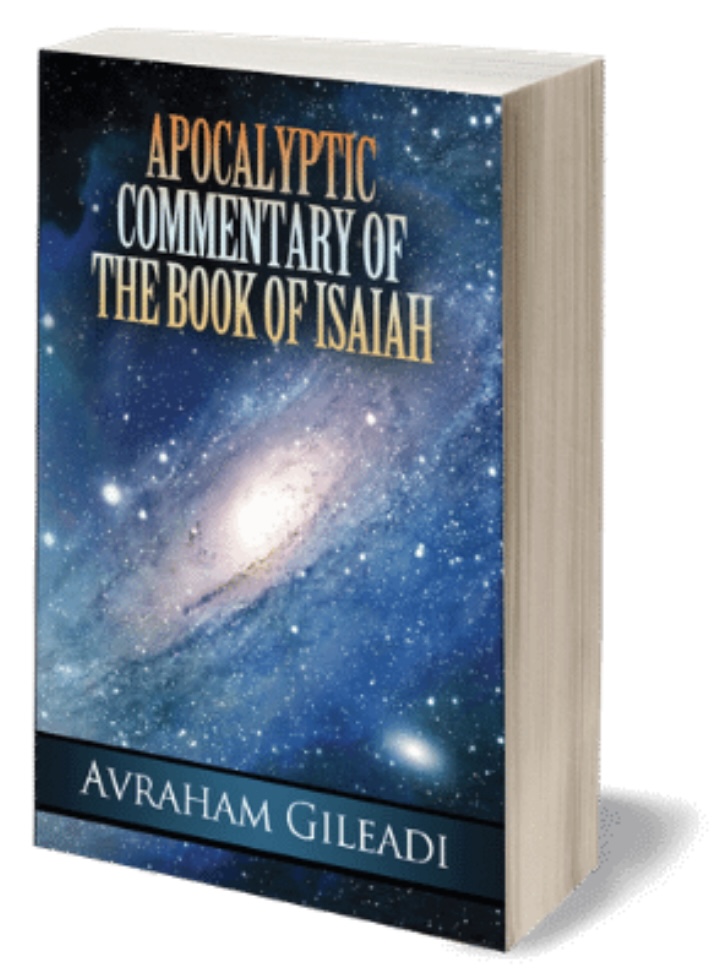When interpreting Isaiah 53, many people jump to conclusions and extrapolate meanings that aren’t necessarily there. Careful analysis of this messianic chapter reveals its secrets when we keep an open mind. Worshiping God with our minds requires processing through the evidence.
Starting off with a conclusion before examining the data has led to needless discord between Jews and Christians. Each group can point to Isaiah 53 and use it to support its theological position. Christians claim the suffering servant is Jesus while Jews say they are that servant.
Perhaps because of such disputes, neither side has found the whole truth. First of all, Isaiah 53 forms an integral part of two juxtaposed passages. These define the character traits of the King of Babylon and the King of Zion. For convenience, I will call them the Tyrant and the Servant.
Twenty-one antithetical verses describe the attributes of one figure as the opposite of the other’s. One typifies wickedness, treachery, and all that is evil. The other epitomizes righteousness, faithfulness, and all that is good—a divine archetype set in opposition to a diabolical one.
The Servant–Tyrant Parallelism
How can we interpret Isaiah 53 without considering this larger literary context? As an intrinsic part of Isaiah’s prophecy, this structured contrast between two or more archetypal figures reveals a cache of prophetic data that has long lain hidden from the eyes of the world.
Who is the Tyrant? Who is the Servant or Servants? In which time periods do they appear? Are they more than historical characters? What application do their respective patterns of exaltation before humiliation and humiliation before exaltation imply for the rest of humanity?
Scholars’ naming Isaiah 52:13–53:12 the “Servant Song” poses another obstacle for interpreting these messianic verses. While on the one hand God is the speaker in Isaiah 52:13–15 and 53:11–12, a spokesman for his people is the speaker in Isaiah 53:1–10—two different persons.
When we link up the verses in which God speaks of his “servant” with others that mention the “servant” in the Book of Isaiah, we find that they round out his task of restoring God’s end-time people. The servant gathers Israel’s tribes to safety and appoints them new lands of inheritance.
Isaiah 49:5–6, 8For now Jehovah has said— he who formed me from the womb to be his servant, to restore Jacob to him, Israel having been gathered to him; for I won honor in the eyes of Jehovah when my God became my strength— he said: It is too small a thing for you to be my servant to raise up the tribes of Jacob and to restore those preserved of Israel… I have created you and appointed you to be a covenant of the people, to restore the Land and reapportion the desolate estates,
Isaiah 55:3–5Give ear and come unto me; pay heed, that your souls may live! And I will make with you an everlasting covenant: [my] loving fidelity toward David. See, I have appointed him as a witness to the nations, a prince and lawgiver of the peoples. You will summon a nation that you did not know; a nation that did not know you will hasten to you.
As in other servant passages, Isaiah 52:13–15 and 53:11–12 depict God’s servant’s fulfilling the role of a Davidic King, an end-time descendant of David named David. Like King Hezekiah, he obtains God’s deliverance of his people at a time when they face a mortal threat.
When paying the price of his people’s temporal salvation—their physical protection from a mortal threat—Hezekiah suffered a deathly illness (Isaiah 38:1–6). Just so, God’s servant suffers “marring” or disfigurement by his enemies before God heals him (Isaiah 52:14; 57:18–19).
Like King Hezekiah, the servant obtains God’s deliverance of his people who are threatened by an end-time “Assyrian” army. The angel of God’s slaying an invading Assyrian force of 185,000 men in Hezekiah’s day (Isaiah 36–38) foreshadows a similar such end-time event.
The servant’s physical ordeal constitutes a descent phase into suffering that precedes an ascent phase to a higher spiritual level. Unlike the suffering person of Isaiah 53:1–10, who goes to his death when answering for his people’s transgressions, God’s servant does not die.
As with ancient Near Eastern vassal kings, who answered for their people’s disloyalties to their emperor, the servant answers for his people’s disloyalties to Israel’s God by suffering on their behalf. Yet he lives to “divide the spoil with the mighty” (Isaiah 53:12) as after a great battle.
Isaiah 52:13–15My servant, being astute, shall be highly exalted; he shall become exceedingly eminent: just as he appalled many—his appearance was marred beyond human likeness, his semblance unlike that of men—So shall he yet astound many nations, kings shutting their mouths at him—what was not told them, they shall see; what they had not heard, they shall consider.
Isaiah 53:11–12He shall see the toil of his soul and be satisfied; because of his knowledge, and by bearing their iniquities, shall my servant, the righteous one, vindicate many. I will assign him an inheritance among the great, and he shall divide the spoil with the mighty, because he poured out his soul unto death, and was numbered with criminals—he bore the sins of many, and made intercession for the transgressors.
The salvation wrought by the suffering person of Isaiah 53:1–10, on the other hand—as narrated by a spokesperson—is unique in messianic prophecy. It combines the proxy role of a Davidic king with the proxy sacrifice of an animal in order to obtain humanity’s spiritual salvation.
Isaiah 53:7–8Like a lamb led to slaughter, like a sheep, dumb before its shearers, he opened not his mouth. By arrest and trial he was taken away. Who can apprise his generation that he was cut off from the land of the living for the crime of my people, to whom the blow was due?
Isaiah 53:5He was pierced for our transgressions, crushed because of our iniquities; the price of our peace he incurred, and with his wounds we are healed.
The suffering person’s paying the price of his people’s “peace” and “healing” encompasses God’s salvation on every level. It exclusively identifies Israel’s God in Isaiah’s prophecy. Only he—not an animal proxy—can pay the price of divine justice to atone for his people’s sins.
The word links “peace” and “healing” in the Book of Isaiah affirm that Isaiah 53:1–10 describes none other than Israel’s God in the act of redeeming his people by suffering and dying on their behalf. Only God, not a man, can grant sure and lasting peace; and only he can truly heal.
Isaiah 26:3Those whose minds are steadfast, [O Jehovah,] you preserve in perfect peace, for in you they are secure.
Isaiah 57:18–19Yet I have seen his conduct and I will heal him; I will guide him and amply console him and those who mourn for him, who partake of the fruit of the lips: Peace, wellbeing, to those far off and to those who are near, says Jehovah who heals him.
Isaiah 30:26The light of the sun shall increase sevenfold; as the light of seven days shall it be, in the day Jehovah binds up the fracture of his people and heals their open wound.
Isaiah 53 thus features two messianic persons, one a temporal savior, the other a spiritual savior. The second figure’s identity as the King of Zion explains why Isaiah never calls him a “servant.” He nevertheless assumes “the form of a servant” (Philippians 2:7)—the role of proxy savior.
After suffering a descent phase when obtaining his people’s temporal salvation, God’s end-time servant enjoys an ascent phase of divine empowerment. The King of Zion’s ascent phase, on the other hand—after suffering for his people’s spiritual salvation—occurs at his coming in glory.

